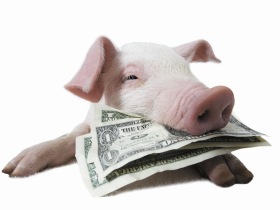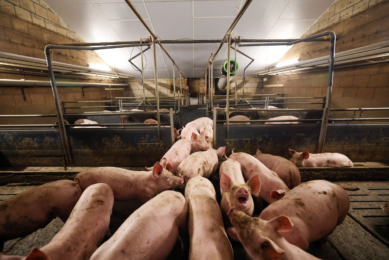Enzymes save on feed costs in pigs

Pig producers looking for lower feed costs in diets containing distillers dried grains with solubles (DDGS) can save around $5/tonne, without risking animal performance, according to the latest research from Danisco Animal Nutrition.
As feed costs continue to fluctuate, by-products from the food and fuel ethanol industries can provide alternative, more cost- effective ingredient options for the nutritionist.
The use of DDGS in animal feed has increased with the growth of the bioethanol industry. Whilst DDGS is potentially a cost effective and valuable feed ingredient, there are certain anti-nutritional factors which can limit its use in pig feed.
In a trial conducted at the University of Illinois, USA, combining a new-generation phytase (Phyzyme® XP) with a highly effective xylanase enzyme (Porzyme® 9302) in corn-based pigs diets containing 20% corn DDGS significantly
– improved digestible energy by 5.6% (175 kcal/kg, 0.73 MJ/kg),
– improved ileal amino acid digestibility by 4-8% and
– increased phosphorus digestibility from 22% to 51%.
Feed cost saving
In a trial conducted at the University of Kentucky, USA, adding the xylanase and phytase combination resulted in net savings in feed costs of about $5/tonne.
Performance of pigs fed a corn-based diet containing 20% corn DDGS reduced in both digestible energy (95 kcal/kg; 0.40 MJ/kg) and available phosphorus (0.01-0.04%) and supplemented with the enzyme combination was at least equivalent to the performance of pigs fed a more expensive standard diet.
“Pig producers are continually looking for opportunities which allow more flexibility in both the levels and types of ingredients which can be added to the feed. This is particularly important during these turbulent times” comments Dr Gary Partridge, Global Technical Services Director, Danisco Animal Nutrition.
“Optimised enzyme solutions offer great opportunities to keep feed costs to a minimum and help boost profits.”
Photo: Mike Kemp/Rubberball Productions/Getty Images











